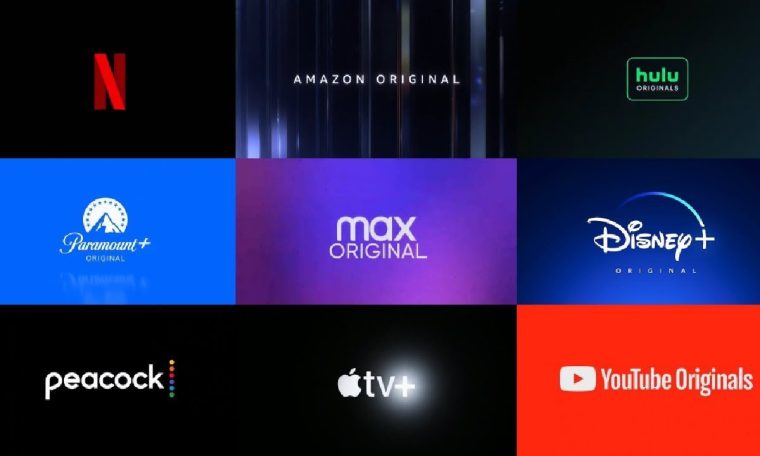
Introduction
In the realm of entertainment, the landscape has undergone a monumental shift in recent years with the rise of streaming services. These platforms have revolutionized how people consume content, fundamentally altering the traditional methods of accessing movies, TV shows, music, and more. The convenience, affordability, and diverse offerings of streaming services have catapulted them to the forefront of the industry, reshaping not only consumer habits but also the entire media landscape.
The Evolution of Streaming Services
Streaming services, once a niche market, have rapidly evolved into dominant players within the entertainment industry. The journey began with the advent of platforms like Netflix and Hulu, which introduced the concept of on-demand streaming to a mass audience. Initially serving as repositories for past television episodes and movies, these platforms soon began producing original content, challenging the supremacy of traditional television networks and film studios.
Market Disruption and Fragmentation
The emergence of streaming services has disrupted traditional media channels in unprecedented ways. With the ability to access a vast library of content at any time and from any location, consumers are no longer tied to rigid programming schedules or physical media formats. This freedom of choice has led to a significant decline in traditional cable and satellite subscriptions, prompting a wave of cord-cutting as viewers opt for more flexible and cost-effective streaming options.
However, the success of streaming services has also led to market fragmentation. As more companies enter the streaming arena, each vying for a share of the subscriber base, consumers are faced with a multitude of options. This fragmentation has sparked fierce competition among streaming providers, driving innovation and investment in original content production to attract and retain subscribers.
The Streaming Wars
The intensifying competition among streaming services has given rise to what has been dubbed the “streaming wars.” Tech giants like Amazon and Apple, along with entertainment conglomerates such as Disney and streaming Mentors, have entered the fray, each armed with their own extensive content libraries and exclusive offerings. This has led to a proliferation of streaming platforms catering to various niches and demographics, further fragmenting the market.
In an effort to differentiate themselves, streaming services have invested heavily in original programming, producing high-quality films and series that rival traditional Hollywood productions. This shift towards original content has blurred the lines between traditional and streaming media, with many acclaimed filmmakers and actors now choosing to collaborate with streaming platforms.
The Impact on Traditional Media
The rise of streaming services has had profound implications for traditional media outlets. Television networks and movie studios are facing unprecedented challenges as viewers increasingly migrate to streaming platforms. This shift in consumer behavior has forced traditional media companies to adapt or risk obsolescence, leading to strategic realignments and mergers within the industry.
Moreover, the direct-to-consumer model adopted by streaming services has enabled them to bypass traditional distribution channels, empowering content creators and disrupting established power dynamics within the entertainment industry. This democratization of content creation has opened doors for diverse voices and perspectives, challenging the homogeneity often associated with mainstream media.
Changing Viewing Habits and Preferences
Streaming services have not only transformed how content is distributed but also how it is consumed. Binge-watching, the practice of watching multiple episodes of a series in rapid succession, has become a cultural phenomenon fueled by the availability of entire seasons on streaming platforms. This shift towards on-demand viewing has reshaped audience expectations, prompting traditional broadcasters to experiment with new formats and release strategies.
Moreover, streaming services leverage algorithms and user data to personalize content recommendations, enhancing the viewing experience and introducing viewers to content they might not have discovered otherwise. This targeted approach to content delivery has further entrenched the dominance of streaming platforms in the entertainment ecosystem.
Challenges and Concerns
Despite their widespread popularity, streaming services are not without their challenges and controversies. Issues such as content licensing disputes, data privacy concerns, and the environmental impact of streaming have sparked debates about the sustainability of the streaming model. Moreover, the sheer volume of content available on streaming platforms has raised questions about quality control and the long-term viability of the industry.
Furthermore, the growing dominance of a few major players in the streaming market has raised concerns about monopolistic practices and the concentration of power. As streaming services continue to expand their reach and influence, policymakers and regulators are grappling with how best to ensure fair competition and protect consumer interests in this rapidly evolving landscape.
The Future of Streaming
Despite these challenges, the future of streaming services appears to be bright. Advances in technology, such as the widespread adoption of 5G networks and the proliferation of smart devices, are poised to further accelerate the growth of streaming platforms. Moreover, the global reach of streaming services presents immense opportunities for content creators to reach audiences around the world, transcending geographical and cultural barriers.
As streaming services continue to innovate and evolve, they are likely to become even more deeply entrenched in the fabric of modern society, shaping not only how we consume entertainment but also how we perceive and interact with the world around us. The rise of streaming services represents a paradigm shift in the entertainment industry, heralding a new era of choice, accessibility, and creative freedom for audiences and creators alike.



